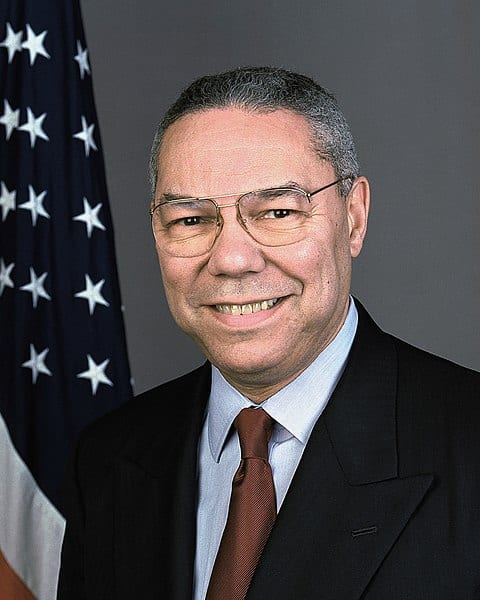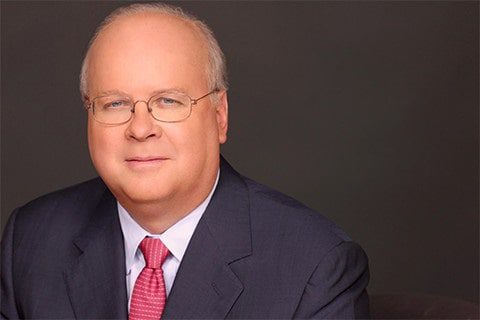
Op-Ed first published in the Wall Street Journal
Opinion
Former Secretary of State Colin Powell’s memoir is titled “An American Journey.” It begins “I have had a great life.” So he did; so it was.
Powell’s death at 84 ended a quintessential American story. The son of immigrants, he grew up in modest circumstances in the Bronx, gathered his “gang”—which he described as two blacks, two Lithuanians and a Puerto Rican—and struggled until he found his life’s course by joining the Reserve Officers’ Training Corps at the City College of New York.
What followed was a storied career: two combat tours in Vietnam, White House Fellow, President Reagan’s national security adviser, the youngest chairman of the Joint Chiefs of Staff, and secretary of state under President George W. Bush. The former president remarked this week that Powell was so respected that he was given the Presidential Medal of Freedom twice, a quip that has the advantage of being true.
Powell’s death is also a reminder that a generation of GOP foreign policy-titans is passing. The procession was led by Reagan in 2004, Defense Secretary Caspar Weinberger in 2006, President George H.W. Bush, Sen. John McCain and Defense Secretary Frank Carlucci in 2018; national security adviser Brent Scowcroft in 2020 and this year Secretary of State George Shultz and Defense Secretary Donald Rumsfeld.
These Republicans often differed on specific policies—sometimes strongly—but they shared a common outlook: America is a force for good; the world is a dangerous place in which peace is maintained through strength; U.S. leadership is vital to peace; American ideals are powerful assets; and engagement in the global economy is in our interest.
A new poll by the Vandenberg Coalition, a nonpartisan center-right group, shows this outlook endures: The electorate is supportive of engaged American global leadership. (Full disclosure: I commented on the draft survey.)
It’s important to remember that while ordinary Americans often pay attention to the specifics of economic or social policy, their foreign-policy views are drawn less from detailed knowledge about specific matters and more from underlying sentiments about how the world works. Words that resonate with these deeply held attitudes—like “peace through strength”—have durability. Hence our leaders’ rhetoric tends to matter more on international concerns than on domestic ones.
The Vandenberg survey found a large reservoir of center-right internationalist feelings. For example, 81% of Americans “strongly” or “somewhat agree” that “the presence of U.S. troops in Europe and Asia has helped to keep the peace since the end of World War II and is a strong deterrent to our enemies.”
Seventy-five percent consider it an “extremely” or “very high” priority to protect America from terrorist threats, 74% to guard against cyberattacks from adversaries and criminal networks, 66% to ensure our military remains the world’s strongest, and 65% to stop Iran from getting a nuclear weapon. There are 60% majorities for both “stopping China from erecting unfair trading practices” and “countering the growing military threat from China by building stronger alliances with countries like India, Japan, Australia, South Korea and other countries in the Pacific.”
On trade, half agree “U.S. involvement in the global economy is a good thing because it provides U.S. companies and farmers with new markets and opportunities for growth and creates jobs here at home,” while only 23% believe it’s a bad thing. Similarly, 51% believe “trade agreements and international trade are beneficial and help keep the United States safe because countries with strong economic ties with each other are less likely to go to war” while only 22% say they’re “harmful.”
Op-Ed by Mr. Rove courtesy of rove.com

Karl Rove served as Senior Advisor to President George W. Bush from 2000–2007 and Deputy Chief of Staff from 2004–2007. At the White House he oversaw the Offices of Strategic Initiatives, Political Affairs, Public Liaison, and Intergovernmental Affairs and was Deputy Chief of Staff for Policy, coordinating the White House policy-making process.
Mr. Rove has been described by respected author and columnist Michael Barone in U.S. News & World Report as “…unique…no Presidential appointee has ever had such a strong influence on politics and policy, and none is likely to do so again anytime soon.” Washington Post columnist David Broder has called Mr. Rove a master political strategist whose “game has always been long term…and he plays it with an intensity and attention to detail that few can match.” Fred Barnes, executive editor of The Weekly Standard, has called Mr. Rove “the greatest political mind of his generation and probably of any generation. He knows history, understands the moods of the public, and is a visionary on matters of public policy.”
Before Mr. Rove became known as “The Architect” of President Bush’s 2000 and 2004 campaigns, he was president of Karl Rove + Company, an Austin-based public affairs firm that worked for Republican candidates, non-partisan causes, and non-profit groups. His clients included over 75 Republican U.S. Senate, Congressional, and gubernatorial candidates in 24 states, as well as the Moderate Party of Sweden.

